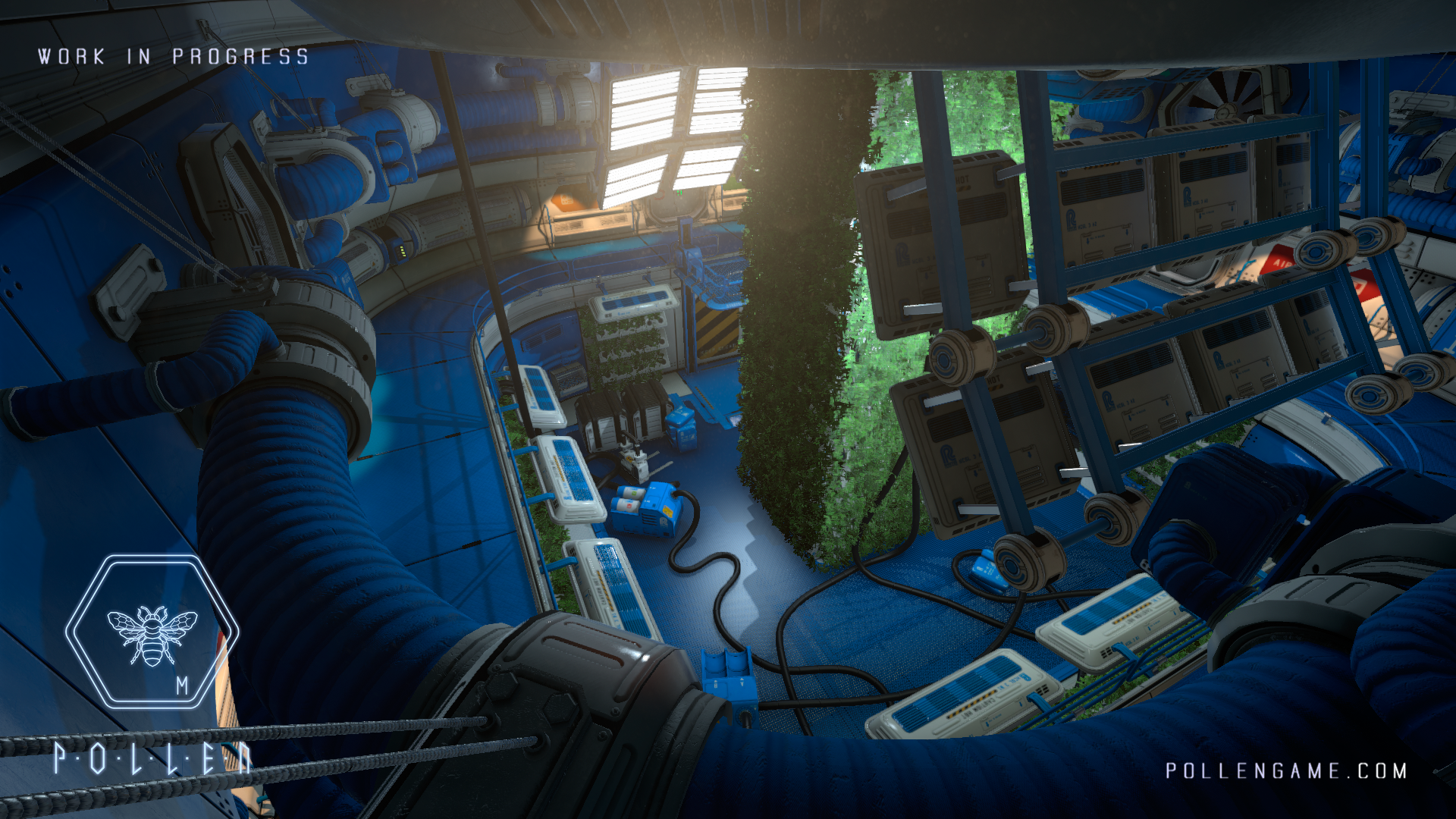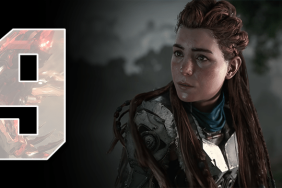It's out there, man. Far out there.
"I tried the Oculus demo back at GDC," I said before my demo for Pollen at PAX. I could not have expected how this statement would result in such a dramatic difference in the presentation I was given for the game, from Finnish developer Mindfield Games, compared to what I would have received otherwise. It was the difference between Pollen being just another VR experiment into one of my most awesome experiences at PAX.
Reacting to what I said, Co-Founder and Project Lead Olli Sinerma disconnected the Oculus Rift from the demo station, then sat me in front of it to give me a whirlwind tour of the story, playing on the monitor, telling me, "I've only done this for people who already got to try the headset, maybe two people."
Pollen isn't just playfully referencing the design from films like Stanley Kubrick's 2001 and Andrei Tarkovski's Solaris (the 1972 Russian film, not to be confused with the George Clooney one), the game is striving to be the VR gaming equivalent of those mindbending sci-fi experiences from the late-middle part of the 20th century. The game even takes its setting from there, imagining a world where space exploration of our solar system ramped up in the 1990s those films might have imagined.
Set in February 1995, you play as a replacement technician arriving on a mining station on Saturn's moon, Titan. However, upon arriving you find the station empty, with subtle clues as to things that happened to them in medical records, work shift information, and other environmental clues. Cassette tapes recorded by the missing technician give you personal information about her experiences, leading you further in the mission (clearly inspired partly by the narrative structure of Gone Home). This much can be gleaned from the Oculus Rift demo players have been experiencing.
However, here is where the similarity to Gone Home and other walking simulators really ends, as Sinerma showed me the game's devious puzzles. In one section the player finds a welcome mat drawn on the back of a schematic by the missing technician. That schematic is necessary to find and solve the puzzle in the room. This continued with Sinerma showing how touching a particular personal object of the missing person led to the sudden shift through time and space (with some very psychedelic visuals) into an alternate (dimension?) version of the station.
This version of the station was undeniably creepy, with subtle music and audio cues to ramp up the tension. With the power out, the player has to navigate the station, now appearing to be years—perhaps decades—older and falling into decay. Going out into the atmosphere outside reveals that it has changed locations from the surface of Titan to somewhere else, and inside charts show evidence of system failure of hydroponics and other systems. In these areas Sinerma showed puzzle solutions being hinted at by wall posters, but not explicitly stated, including needing to use antigravity to make adjustments in the room to open another corridor. Behind us, as Sinerma manipulated our way through the beginning of several puzzles, two girls gasped and commented on the gameplay excitedly.
Near the end of the demo, Sinerma jumped us far forward in the game, to near the end. He mentioned that something up ahead would be what the game's equivalent of the Monolith from 2001 would be. He told me that it would something no one had ever seen in games, then asked me if I remembered the end of 2001, then gestured to the Oculus Rift headset, as if to say, "imagine getting to not just watch the end of 2001, but to live it."
The heady sci-fi references don't end there. Earlier in the interview, Sinerma told me that there were hundreds of books modeled in the game, all famous works of science fiction (sadly unreadable). At one point during the demo, he pulled up one of the employee name badges from where it had fallen to the floor. It read, "Ijon Lem": a portmanteau of Polish sci-fi author Stanislaw Lem (who wrote the original book Solaris on which the Russian and American films were based) and Lem's satirical protagonist, an astronaut named Ijon Tichy. The game is like to be a treasure trove for references.
Pollen is planned as a launch title next year for the Oculus Rift, though Sinerma showed me a video of the devs using an HTC Vive development kit, with plans for implementation for Sony's Project Morpheus as well. The game will also be playable without a VR headset on the PC, Mac, Linux, and PS4. As a fan of speculative fiction and heady science fiction, it's now jumped to the top of my most anticipated games list.
Pollen
-
Pollen #1

-
Pollen #2
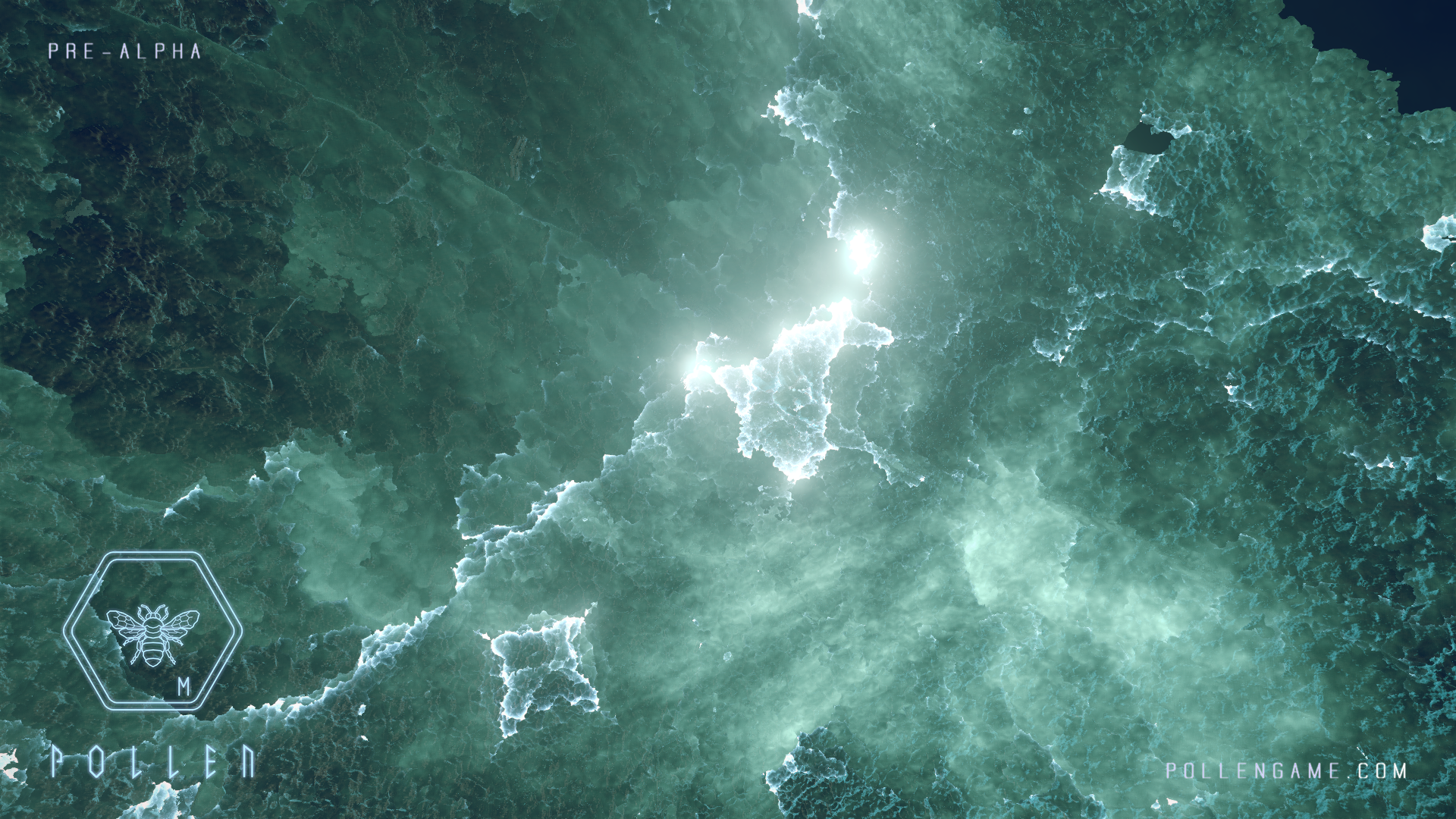
-
Pollen #3
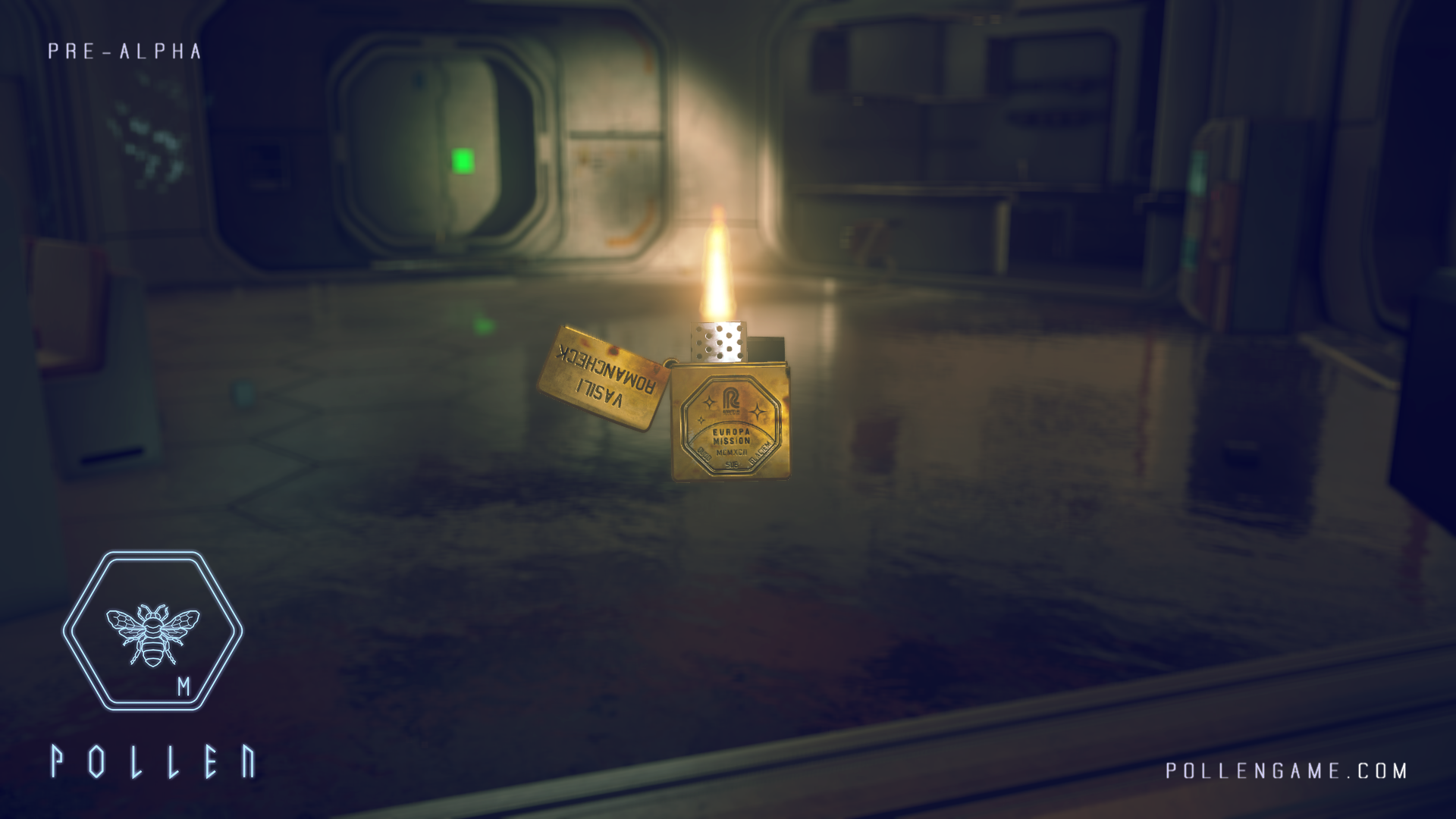
-
Pollen #4
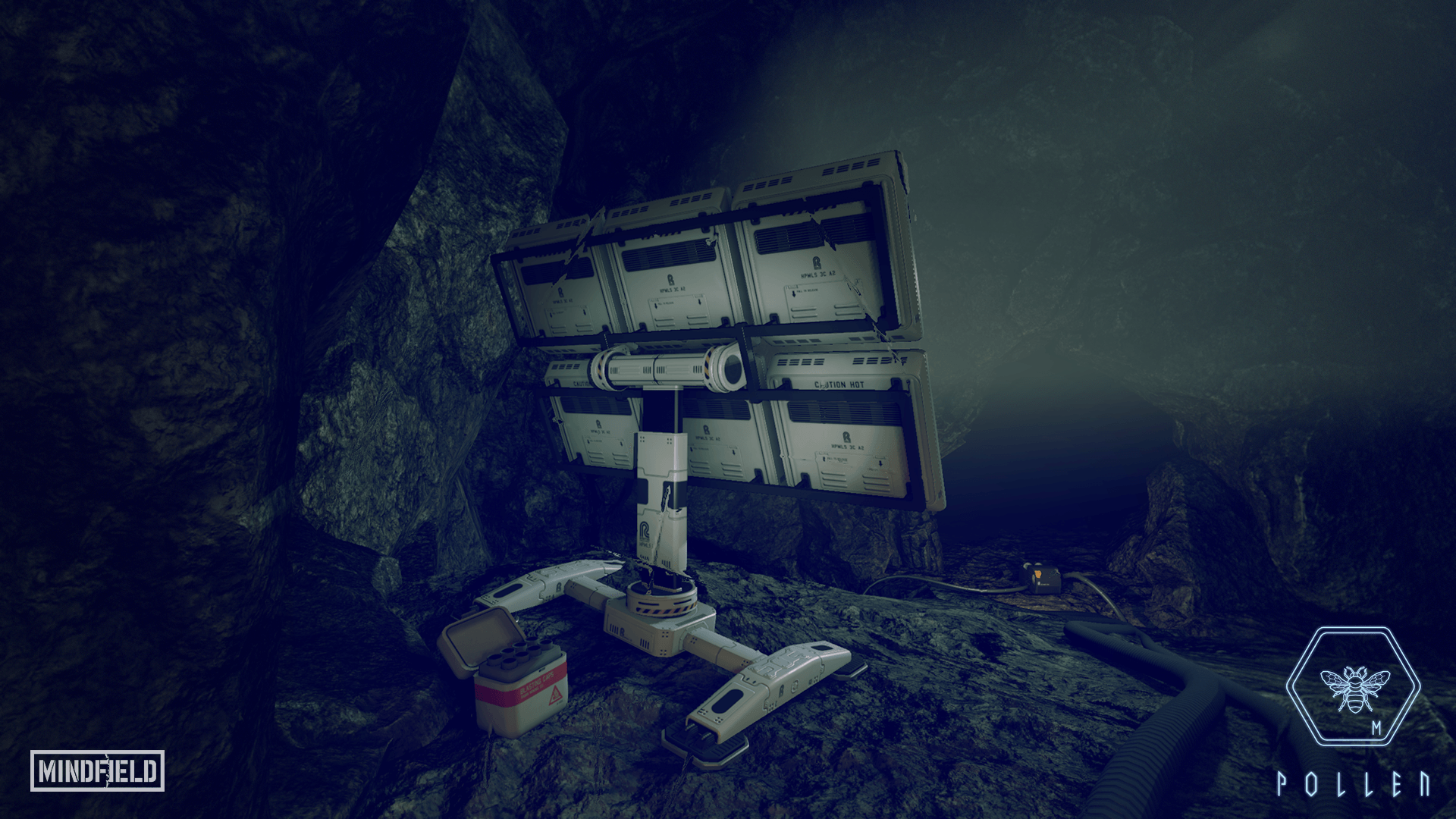
-
Pollen #5
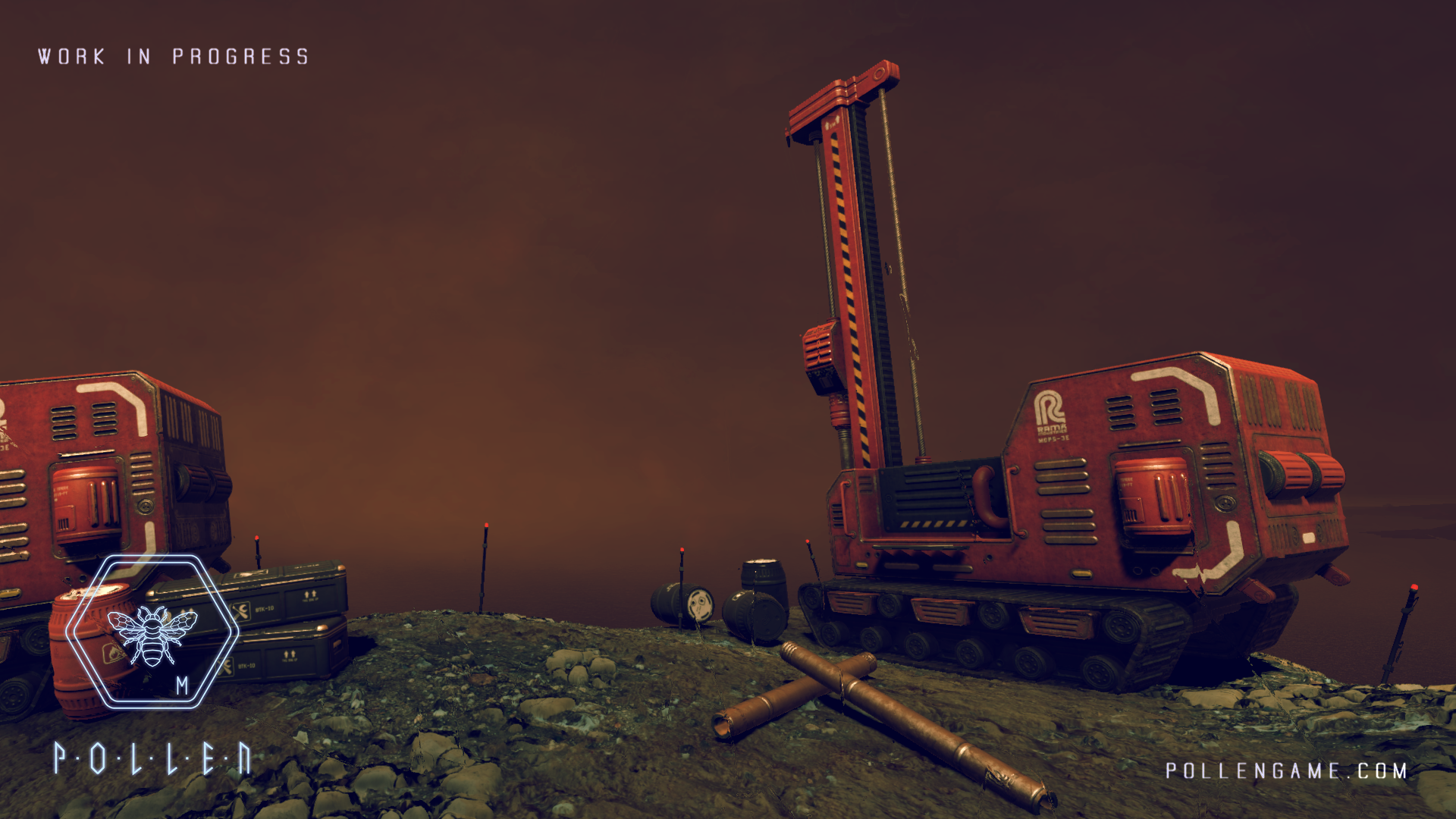
-
Pollen #6
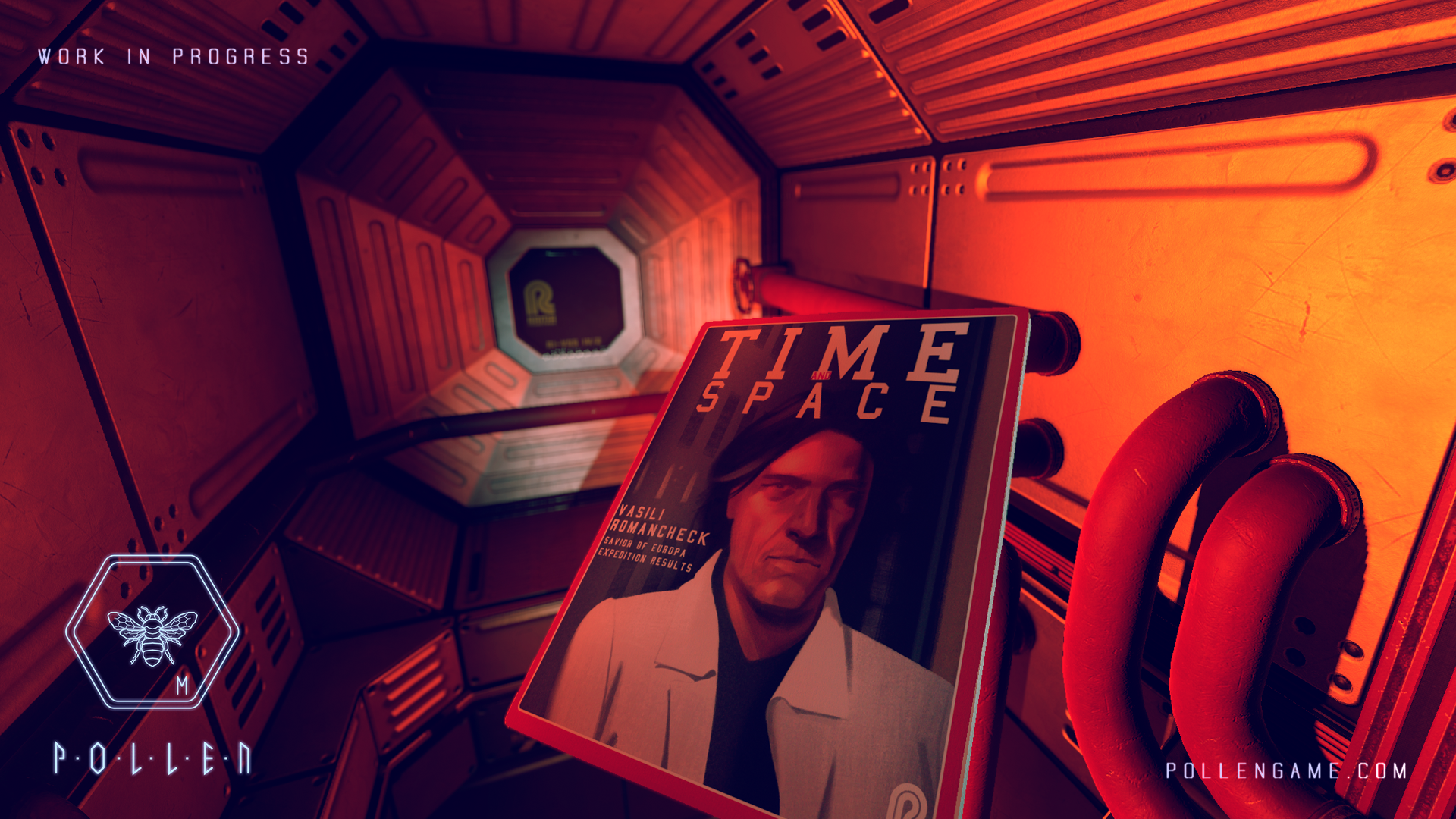
-
Pollen #7
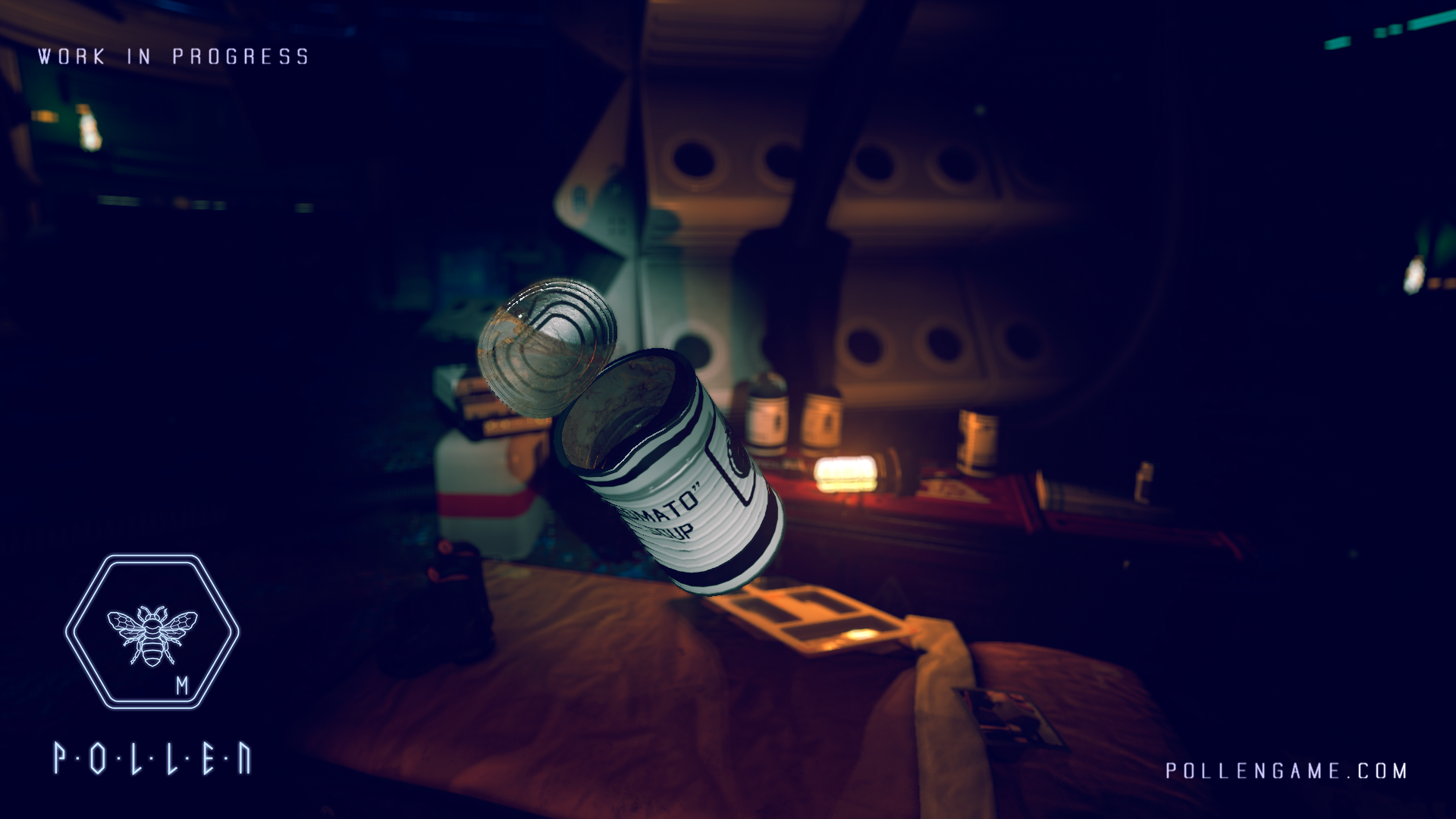
-
Pollen #8
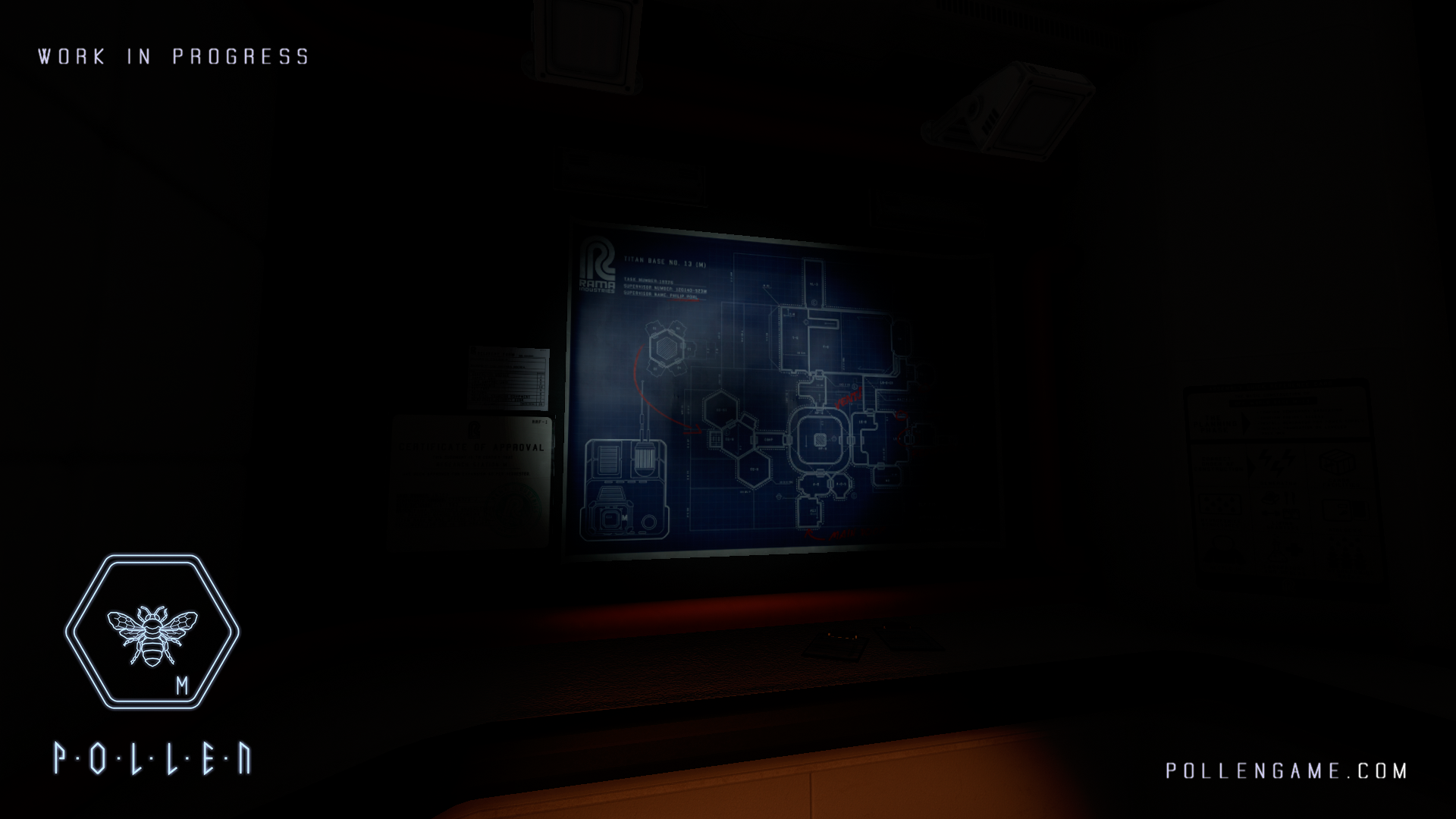
-
Pollen #9

-
Pollen #10
